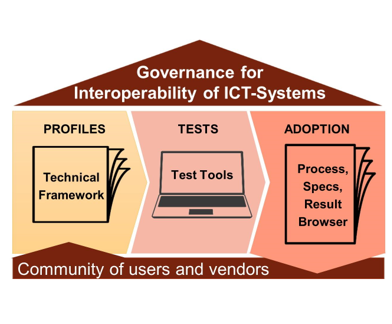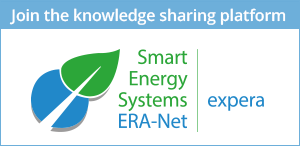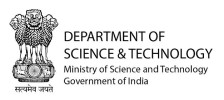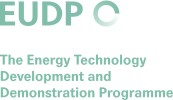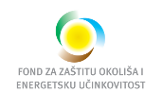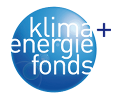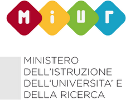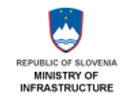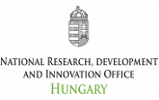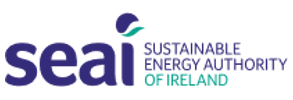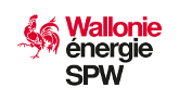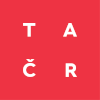European Collaboration Network for Interoperability Testing
ERA Net EnerDigit pilots a European Collaboration Network for Interoperability Testing, which contributes to the implementation of SET-Plan Action 4 Innovation Activity "A4-IA0-5 Process chain for interoperability of ICT systems”. The European Collaboration Network for Interoperability Testing is a lighthouse activity establishing a cross-sector collaboration of experts that will accelerate the digitalisation processes in the energy sector on a European level.
The collaboration network will feed
the community with state-of-the art information and external knowledge
about the necessary processes and the
testing. Interoperability Test Events (Connectathon Energy) will
The collaboration network will
This ERA-Co-fund Action aims to promote transnational collaboration of R&D projects and other initiatives to develop interoperable solutions by providing an open, independent development and testing environment for developers, manufacturers and suppliers of components and solutions for smart energy systems.
The
1. Structured Knowledge Sharing: It offers a structured, workshop-based process, facilitating knowledge sharing and co-production of fresh insights related to interoperability within ERA-Net/CETP projects.
2. Hands-on Experience: Participants have the opportunity to gain practical, hands-on experience in software interoperability testing in a peer-to-peer setting using the Gazelle Platform.
3. Support for Projects: The platform extends further support to ERA-Net/CETP projects, enabling them to access new tools, know-how, and testing experience for enhanced interoperability.
4. Community Enrichment: It serves to enrich the community by providing the latest information and external knowledge, keeping stakeholders informed about the state-of-the-art developments in the field.
5. Interoperability Test Events: The platform organizes Interoperability Test Events, known as Connectathons Energy, which adhere to the IHE/IES model. These events facilitate real-world testing and validation of interoperability, fostering progress and collaboration in the sector.
Interoperability testing as key factor for system integration
Today, a broadly applicable peer-to-peer test
facility enabling early prototype testing to test for interoperability of ICT
systems
The European Interoperability Framework (EIF)
The lack of interoperability is a major obstacle to progress on the digital single market. Using the EIF to steer European interoperability initiatives contributes to a coherent European interoperable environment, and facilitates the delivery of services that work together, within and across organizations or domains.
The "European Interoperability Framework for European public services” recommends to "formalize cooperation arrangements in interoperability agreements”, addressing four interoperability layers:
• Legal interoperability: Defines the legal basis for cooperation
• Organisational interoperability: Defines business processes necessary for collaboration
• Semantic Interoperability: Describes the meaning and value of information
• Technical Interoperability: Describes the required technologies and standards
The presented approach to interoperability
covers all mentioned interoperability layers and describes the process
The IES-approach in a nutshell
The use of harmonised technical standards is a key requirement for cost-effective system integration. Communication standards allow some flexibility in implementation, so interoperability can only be achieved through a standardised application of these standards.
The Initiative IES-Austria developed the applied methodology for the energy sector
building on the established processes in the health sector (Integrating the
Healthcare Enterprise, IHE),
where interoperability of different systems has long been successfully
implemented internationally. As part of the initiative, a
The approach to interoperability is a tailor-made service offer for every step of the process chain. Domain experts are accompanied in a moderated process in the specification of the Integration Profiles. Vendors who have implemented these, are supported in the preparation and implementation of interoperability tests.
|
Governance |
Building a community for a vendor-independent co-creation process at B2B level |
|
Profile |
Process of development of "Technical Frameworks” containing the integration profiles |
|
|
Tests |
Provide software tools to perform tests where manufacturers test their software products for interoperability and compliance |
|
|
Adoption |
Exchange of publicly available "Technical Frameworks” and successful test results |
The methodology also includes governance that regulates a framework for collaboration within the community and the development and reuse of interoperability profiles. The transparency of the process ensures sustainable investment protection for manufacturers and users and also increases product quality and performance at lower costs.
Interoperability tests play a crucial role in a process chain outlined in a sector-neutral white paper.
For more insights into 'IHE Connectathon' interoperability test events within the health sector, you can refer to the IHE-Europe Whitepaper on Connectathon. This resource provides an in-depth explanation of what Connectathon entails and how it is conducted. This topic holds significance across all sectors.
For a more detailed description of the IES Approach, please refer to the provided documentation:
? White paper on a sector neutral interoperability process
? IHE-White Paper Connectathon
The Vision: From a piloting initiative to a European organisation
It is important that harmonisation processes are carried out at international level in order to facilitate implementation and facilitate the necessary communication of future digitialised systems. As a result, vendors and customers need fewer resources to integrate new components into an existing IT landscape.
The Collaboration Network aims to colaborate with other European Initiatives.
Project Int:net
The project Int:net will participate in the coming test events.
Furthermore in the Int:net project a task supports the idea of the IES-Methodology for a new governance process to establish interoperability in energy data exchange and smart grid development which should be developed, tested and promoted to governmental and regulatory institutions as a valid methodology together with a tool set to implement it.
For more information about the European Collaboration Network for Interoperability Testing, please contact
Angela Berger, BMK/FFG, Austria Mathias Uslar, OFFIS e.V., Germany
Lead Co-Lead
E: angela.berger@ffg.at E: uslar@offis.de
P: +43 664 883 481 54 P: +494419251822
BACK TO NEWS OVERVIEW
